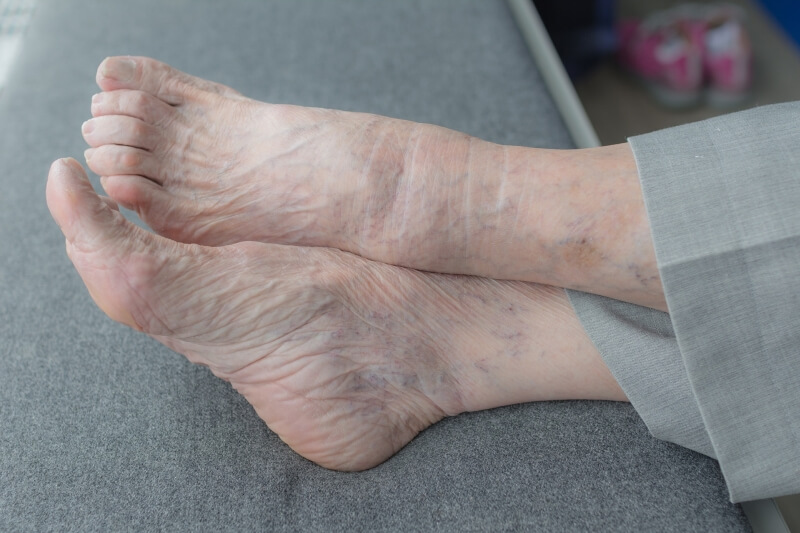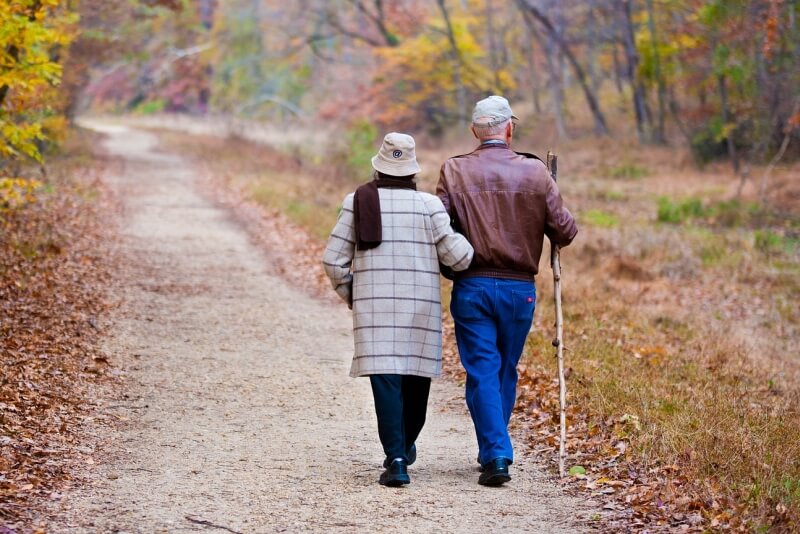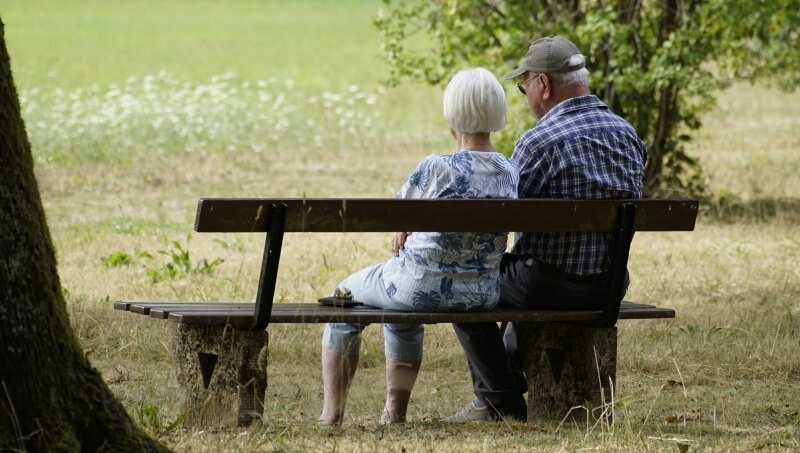We understand that older people may have concerns about barefoot shoes, so in today's article for all grandmothers and grandfathers, we would like to take a deeper look at what we see as the benefits of barefoot shoes due to older age.
Swollen feet
Many people suffer swelling of their feet in old age but perhaps wear the same shoe size all their lives. Such shoes are tight, squeeze the foot, and often make it difficult to even get into them, let alone be able to function in them for hours.
If seniors want to avoid the pain of blistered feet, they need roomier shoes, especially in the toe area. It is where barefoot shoes serve a great purpose, offering plenty of room in the shoe thanks to the anatomically shaped toe box.

Less elastic skin
The risk of blisters and other unpleasant injuries increases as we age, as our skin loses its elasticity. As in the previous point, the foot and especially the toes, mustn't rub against any part of the shoe, which again solves sufficient shoe space in barefoot shoes.
Overall instability
The risk of losing stability increases with age, so it is worth doing everything to prevent unpleasant falls with potentially far-reaching consequences. To maintain balance, the human body needs a foot in the plane and a fan-like distribution of toes to spread the weight evenly.
Barefoot shoes have no raised heel or toe, so they are ideal for the musculoskeletal system in terms of positioning the centre of gravity. The correct posture takes the strain off the ankles, knees, hips, lower back, spine, shoulder blades, etc. Similarly, the wide toe box provides support by the toes so that the foot can react better to unexpected loss of balance.
Muscle weakening
The longer muscles are left sluggish, the more likely they are to weaken and lose their original function. The first negative factor is prolonged sitting or lack of exercise in general. Unfortunately, the recommended medical footwear or specially shaped insoles are also 'harmful' in this context. Although they may help to support an otherwise misaligned body, they are a passive crutch that does not actively strengthen the wearer's muscles.
At a very advanced age, no one expects much in terms of athletic performance, but young grandparents will want to stay active and mobile for a while to enjoy their grandchildren. Thanks to thin and flexible soles, barefoot shoes allow for active walking that uses all muscle groups. Although this means more effort, the workout improves physical fitness. The same goes for walking versus driving, so regular walks in the fresh air are highly recommended.

Poor blood circulation
Blood flow through the limbs is also related to the previous point. Logically, active walking in barefoot shoes has to be balanced by higher blood circulation, which is beneficial for the whole body. In addition, proper blood flow through active movement in winter will help against cold feet.
Loss of feet sensation
The human foot contains a vast amount of nerve receptors that transmit signals from the surface to various organs and systems. Regular massages of the soles help to maintain their functionality.
In barefoot footwear, the thin and flexible sole allows for continuous stimulation of the foot through the ruggedness of the surface. The more sensitive ground sensation also allows a better response to surroundings.
Tired feet
It is easy for older people to get tired during long periods of exercise. So taking regular breaks is a good idea, but reducing the amount of weight you carry can also help. Barefoot shoes are much lighter than conventional shoes. You may not notice it at first, but after thousands of steps, every gram counts, so it's a good thing that barefoot shoes are barely noticeable.

Are barefoot shoes suitable for the elderly?
We recommend you consult your physiotherapist or podiatrist before trying barefoot shoes, as it depends on your health. However, we believe that the benefits far outweigh the potential risks.
We know from experience that many seniors are concerned about thin soles. That's why we encourage everyone to try them and then decide. Most are pleasantly surprised by the feeling of comfort, and that thin sole is not at all the "torture" they imagined.
It is worth noting that if someone (regardless of age) is troubled by thin soles, they are probably walking too fast or badly (stomping). We describe a correct walking technique in a separate article. The advantage of older people is that they tend to move slowly and deliberately, minimising the effect of their feet hitting the hard pavement.
In addition to all of the above, we can also find so-called compromise shoes, which often feature slightly higher soles. For barefoot shoe starts, it is advisable to test whether they will suit the elderly.
